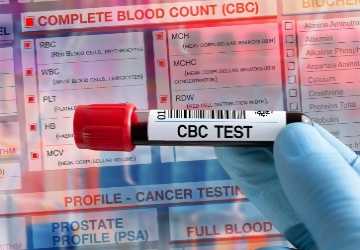Routine Blood Tests: What They Can Reveal About Your Health
Want to know what happens at a cellular level in your body? Blood tests are a sneak preview of your health status, like a regular checkup.
These tests can alert you to issues that may develop into significant complications.
Want to prevent health issues from arising? Regular blood work does that. It's like a private health detective solving the mystery of the body.
Early detection is usually accompanied by easy treatment. It could spare future stress, hours, and dollars.
Who doesn't want a worry-free life regarding health? What can these tests reveal?
This blog post will highlight insights obtained from routine blood work. Prepare to understand hidden signals your body sends and everything about your health, even if you're not a doctor.
Why You Can't Afford to Skip Routine Blood Tests
Routine blood tests are worth their weight in gold when it comes to health. They act as warning signs that something is not right.
These tests can detect hidden diseases that might turn into more significant issues. Have a chronic condition? Routine blood tests can manage it.
They're also a chance to understand how efficiently your organs are working. Doctors use results to make rational treatment decisions. Should you increase or decrease your dose? Should you start a new treatment? Your blood has solutions.
The results of routine tests can make you feel relieved. It's a relief to hear the doctor say, "Everything looks good." It's your health report card—getting full marks has never felt this good.
Decoding Your Health: What Routine Blood Tests Reveal
Let’s dive into the wealth of information your blood can provide. Here's what we can learn from those small vials.
1. Complete Blood Count (CBC): Your Body's Balance Sheet
The CBC can be considered the count of your body's population. It measures the various types of your blood cells and ensures they work correctly.
● Red blood cells: These oxygen carriers tell you whether you are anaemic. Too few, and you may become fatigued or feel like you can hardly breathe.
● White blood cells: These are your body's security guards. High numbers could mean you are combating an infection.
● Platelets: These are the body's stickers. A low platelet count could cause you to bruise easily.

2. Blood Glucose Test: Sugar, Oh Honey Honey
This test is all about your body's interaction with sugar. It is like getting a sneak preview of how efficiently your body is metabolizing the food you eat.
● Fasting glucose: Get your blood sugar checked when you are fasting.
● A1C test: Provides a three-month moving average of your blood sugar.
3. Lipid Panel: The Good, The Bad, and The Fatty
This test is similar to the wanted poster about heart disease risks. It emulsifies the fats in your bloodstream.
● LDL: This type of cholesterol is said to be unhealthy for the body. You want this number to be minor, which means that the optimal is that you want this number to be as low as possible.
● HDL: The one that is considered healthy for the body and is known as the "good" cholesterol. Higher is better here.
● Triglycerides: Unsaturated fat is another type of fat that is said to be healthy. However, high levels could mean trouble.
4. Liver Function Tests: Your Body's Chemical Plant
Your liver is like your small factory; it processes everything you take in your body. These tests determine whether it is in a good running state.
● ALT and AST: Proteins that, if elevated, indicate liver injury. Enzymes that can indicate the severity of the condition if raised.
● Albumin: A protein manufactured in the liver. Lows could pose a problem.
5. Kidney Function Tests: Your Body's Filtration System
These tests determine the efficiency of your kidneys when filtering your blood. It's like they're the quality assurance division of your physical self.
● Creatinine: Something your kidneys should remove from your body as a waste product.
● GFR (Glomerular Filtration Rate): Calculates how many milliliters of blood the kidneys cleanse for one minute.
6. Thyroid Function Tests: Your Body's Thermostat
Your thyroid gland is like a thermostat for your body, helping to control energy usage. These tests determine if it is set at the right level.
● TSH (Thyroid Stimulating Hormone): These may include high levels that might mean an underactive thyroid.
● T4 and T3 are the active thyroid hormones. T4 is Tetraiodothyronine, also known as Thyroxine, and T3 is Triiodothyronine. Their levels assist in defining the issue.
Remember that these tests are beneficial but only paint part of the picture. But to get the whole picture of your health, always consult your doctor and explain the results to him.

Schedule Your Blood Test Today!
Do not take a chance with your health. Now that you understand the importance of routine blood tests, why not start with one today?
Take the time to call and book that checkup now. It is easy and fast and can help dramatically improve your health.
Remember, knowledge is power. These tests help you understand what is happening in your body, like X-rays and MRIs.
They are your best ally for identifying problems and preventing them before they become a real threat to your health.
Well, therefore, what are you waiting for? Make that appointment. This move will do your future self a lot of good; it's a simple but very effective change.
Frequently Asked Questions
Q. How often should I get routine blood tests?
Ans: Most grown-ups should have them once a year. However, your doctor may prescribe more frequent tests if you have specific health issues or are at a higher risk.
Q. Do I need to fast before a blood test?
Ans: That depends on the test. Some tests, such as cholesterol, need to be done after fasting. Others don't. It is always recommended to consult your doctor or the laboratory for specific instructions.
Q. Can blood tests detect cancer?
Ans: Certain blood tests can detect specific biomarkers that may suggest cancer. But they're not definitive. If something is odd, your doctor will prescribe more detailed tests.
Q. How long does it take to get blood test results?
Ans: It varies. Some tests take a few hours, while others take several days. Your doctor's office will inform you. When to expect yours.
Q. Will the blood test hurt?
Ans: It is not very painful; most of the time, people only experience a prick. If you are nervous, tell the phlebotomist about your feelings. They can employ strategies that would make it less uncomfortable.





